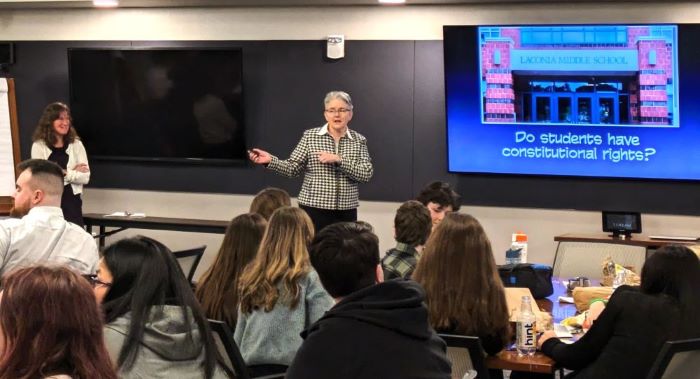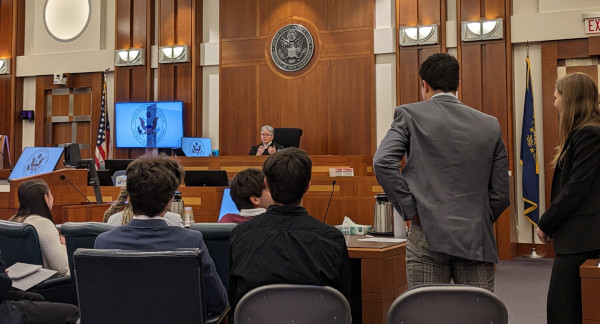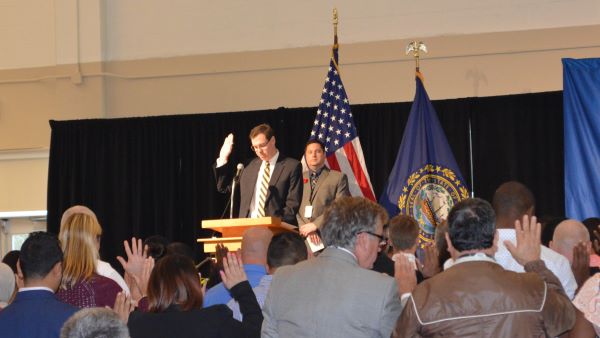Educational Outreach
Educational Outreach in the News
Chief Judge Says Civics Education in the Courts is a Win-Win
Berkeley Judicial Institute - Judges in the Community: A Conversation with Judge Landya McCafferty
Educational Outreach Programs
Off-site Naturalization Ceremonies
Working with the United States Citizenship and Immigration Services, the court brings naturalization ceremonies on the road, typically to local high schools. A large number of students are able to view the patriotic ceremony that celebrates citizenship. Students are engaged in the ceremony itself through music, readings, letter-writing contests and pledge of allegiance.
Middle School Civics Program

Naturalization & Civics Day is a full-day civics program for middle school students. Students begin the day by observing a naturalization ceremony. Students prepare and participate in mock appellate oral arguments based on first amendment issues. Local law school students work with the students to prepare these arguments. Students also participate in a scripted, mock criminal trial. Students are assigned roles of lawyers, judges, and jurors, to fully participate in the whole process. Additionally, staff from Probation presents an anti-bullying program, usually between these mock hearings and during the lunch hour.
You Be the Judge

High School students learn about the federal court system with a focus on criminal sentencing. Students engage in a mock sentencing hearing based on a hypothetical case. The students are divided into prosecutors, defense lawyers, and judges. Lawyers and probation staff serve as defense and prosecution coaches to assist students in developing arguments for the sentencing hearing. The day concludes with the students observing an actual sentencing hearing in the courtroom. After the hearing, the attorneys who argued at the sentencing hearing stay after the hearing and answer questions from the students.
Remote School Visits (via Zoom or Videoconference)
During the pandemic, Judge McCafferty visited many high schools across the state and conducted versions of the above programs (not including a Naturalization ceremony, of course) with the students. Often, Judge McCafferty would be joined on those remote visits by Assistant Federal Defenders and Assistant United States Attorneys, or other lawyers in the New Hampshire Bar. While, at the height of the pandemic, students could not visit the court, the pandemic opened our eyes to the possibility of remote school visits. This was unexpected but most welcome. The court is hopeful that schools that are located too far away to support a field trip to the court might consider asking about the possibility of a “remote court visit” for the students. Judge McCafferty welcomes such requests.





